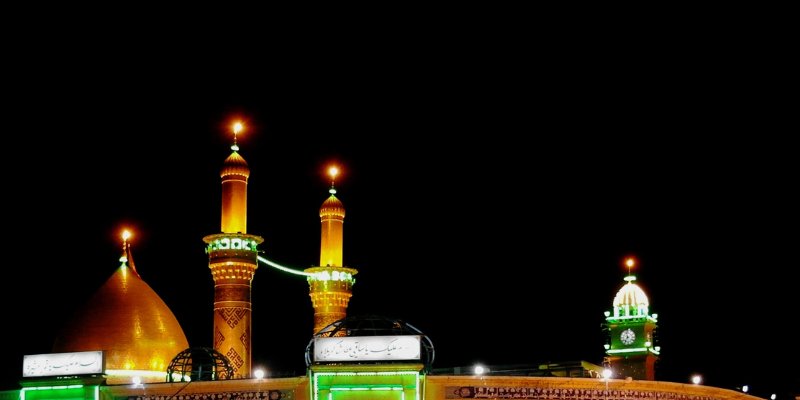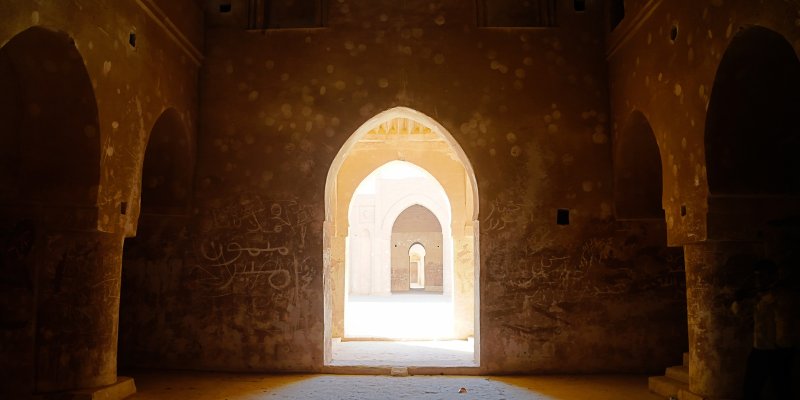Muharram is dear to Muslims worldwide. Reflection, recollection, and spirituality characterize this holy month. Muslims of many civilizations respect it as the start of the Islamic lunar year. Muharram sets the tone for the year, inspiring rejuvenation and spiritual focus among the devout. Besides being the first month, Muharram is a time for contemplation, togetherness, and memory of historical events that formed Islam.
The Islamic lunar calendar begins with Muharram, emphasizing the month's significance in Islamic timekeeping. In Arabic, Muharram, meaning "forbidden", is sacred and representative of Islam's rich cultural and religious heritage. As Muslims begin the new lunar year, Muharram sets the scene for commemorating religious events that shape their spiritual identity.

Historical Context:
Historical events that shaped Islamic history underpin Muharram. It recalls vital events that influenced Islam and resonate with followers today. Muharram is observed after Prophet Muhammad's Hijra from Mecca to Medina, which established the Muslim community. The Battle of Karbala in 680 CE, when Prophet Muhammad's grandson Imam Hussein died, is one of Muharram's most painful occurrences.
Imam Hussein's sacrifice symbolizes resistance against persecution. At Karbala, Imam Hussein and a few of his allies faced overwhelming odds against Yazid I's soldiers. Imam Hussein and his followers' strength and sacrifice in the face of hardship teach bravery, resilience, and moral dedication. Beyond historical records, Imam Hussein's sacrifice has inspired spiritual contemplation and Muslims fighting injustice.
Significance of Muharram:
In Islam, Muharram is a month of contemplation, sadness, and spiritual rebirth. The martyrdom of Imam Hussein at Karbala gives it particular importance. His sacrifice is a timeless story of justice, truth, and unrelenting resistance to injustice. Muharram provides a hallowed area for spiritual development and contemplation beyond time.
The story of Muharram is closely tied to Imam Hussein's striving for virtue under adversity. Muslims are reminded of the eternal struggle between good and evil this month, encouraging them to fight injustice. The communal remembering of sacrifice during Muharram guides followers towards morality throughout the year.
Muslim rites and commemorations during Muharram honor Karbala and provide powerful teachings. The perseverance of Imam Hussein inspires Muslims to face life with faith, ethics, and social justice. Muslims connect with Islamic history's sacrifice and perseverance via Muharram's constant guidance.
Observance of Muharram:
Muharram traditions reflect the month's somberness and reflection. Muslims mourn during Muharram to honor Imam Hussein and his companions. Elegies, processions, and symbolic Karbala reenactments are common rites. Muslims practice self-discipline and spirituality in a contemplative setting.
Muharram celebrations center on Majlis and processions. Religious experts and leaders discuss Karbala's moral and spiritual precepts during these occasions. This month, Salat al-Muharram prayers request forgiveness, guidance, and blessings for the future year. The month's importance and link to Islam are explained in Muharram's sermons.
Importance in Islamic Culture:
Muharram transcends religion and becomes a month of Islamic culture. This is when Muslims contemplate, rejuvenate their spirits, and unite. Muslims consider their deeds, intentions, and Islamic beliefs during Muharram—the Muslim ummah bonds via Karbala's symbolism and principles of brotherhood.
Muharram's Karbala commemorations provide rich symbolism and messages that connect with Islamic culture. The unshakable devotion to justice shapes Islamic art, literature, and religion, the value of sacrifice for great purposes, and the tenacity in the face of hard times. Muharram helps Muslims identify themselves and sustain their spiritual and community ideals.

Global Observance:
International Islamic communities observe Muharram in varied ways. Cultural, historical, and local factors shape Muharram traditions, representing Islamic variety. Poetry, plays, and art depicting Karbala are used in various processions and gatherings. The worldwide variety of Muharram shows how Islamic traditions may change while honoring Karbala's sacrifices.
Cultural differences in marking the month include mourning traditions. Some societies express sorrow by self-flagellation or chest-beating, while others grieve more contemplatively. Muharram's core of meditation, togetherness, and spiritual regeneration transcends cultural differences.
Contemporary Relevance:
Today, Muharram's teachings and insights apply to current issues. Human rights, social justice, and ethical governance challenges reflect Imam Hussein's ideals of opposition to oppression and uncompromising dedication to justice. Karbala helps Muslims navigate challenging challenges and promotes compassion, honesty, and social responsibility.
Islamic philosophy and participation have changed Muharram's interpretations and practices. Traditional rites and observances may be supplemented with technology for worldwide awareness and outreach, virtual meetings, and media to teach Karbala's principles. Muharram promotes interfaith understanding as communities discuss its cultural and spiritual importance. Interfaith gatherings during Muharram allow Muslims to share their principles and traditions, developing mutual tolerance and understanding. Current relevance shows Muharram's adaptability, enabling its lessons to permeate society.
Muslim diaspora revere Muharram as a uniting factor across cultures and borders. Muharram is celebrated by Muslims worldwide, regardless of their nationality. This celebration emphasizes worldwide brotherhood and the universality of justice, sacrifice, and perseverance.
Conclusion:
Muharram is a holy and meaningful month in the Islamic calendar with a rich history and profound importance. In the Muslim lunar year, Muharram becomes a time of deep reflection, communal remembering, and spiritual regeneration. The tragic events of Karbala and Imam Hussein's sacrifice remind us of Islam's everlasting virtues of justice, honesty, and endurance.
The profound mourning rites, somber processions, and sincere prayers of Muharram encourage thought and meditation. Islamic culture emphasizes it via varied cultural manifestations, creative depictions, and exceptional social togetherness throughout the month. Muharram shows how Muslims worldwide mourn Karbala's martyrs with various yet essential practices. Muharram still inspires and guides Muslims today. Imam Hussein and his companions' beliefs underpin continuous fights for justice, human rights, and ethical government. Muharram also promotes interfaith discussion and tolerance. Muharram's religious ceremonies and practices convey oneness, intense thought, and communal recollection. This holy month inspires Muslims to draw strength from the past, face the present with grit, and embrace the future with a firm dedication to their religion. Muharram's heartbreaking but uplifting message of justice, sacrifice, and unshakable commitment inspires and guides the Islamic community worldwide.




